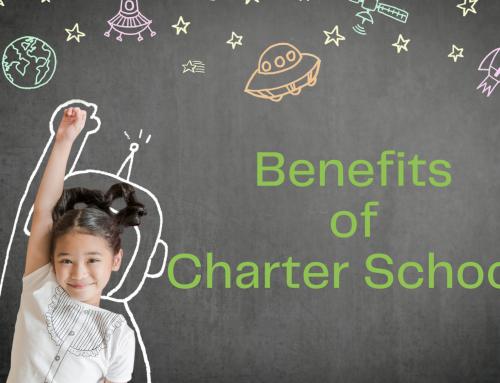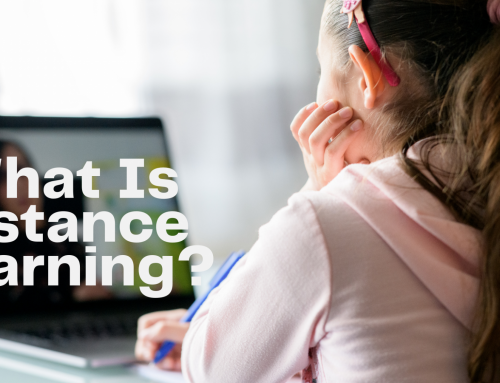Benefits of Reading with Your Child
Think back to your time as a tiny tot—snug in your bed, while visions of overall-clad bears, talking pigs, and beguiling fawns danced in your head.
Early childhood reading is not only impressionable but incredibly rewarding long term.
Young children whose parents read them just one book a day will hear 290,000 more words by age five than those who don’t routinely visit fantastical lands with a caregiver or parent.
Simply put, the introduction of literature into your child’s daily (or nightly) routine promotes both language and cognitive development, which not only enhances your child’s overall well-being but also instills a lifelong love of reading and learning for years to come.
Why is it Important to Read to Your Child?
The importance of reading to children is expansive. Essentially, introducing your child to the written and spoken word provides them with beneficial background information regarding the world around them.
Textual knowledge, coupled with a parent’s own teachings, provides context to children who, along the way, absorb new information through early reading. This includes more complex vocabulary than what’s heard in everyday conversation amongst parents or caregivers.
Parents are also encouraged to add “extra-textural” (and sometimes extraterrestrial) elements to the stories they read to their children—that is, improvised elements that change up the story with each read.
Ad-libbing from time to time likewise expands and develops a child’s burgeoning vocabulary and perhaps introduces new concepts of topical importance that may aid the child in future academic settings.
Incorporating multilingual tales or works of fiction are other great ways to increase your children’s intellectual, social, and emotional development, especially if you come from a bilingual family.
Immersing your children in a native or new language establishes familial connections and brain development, respectively, as well.
5 Benefits of Reading With Your Kids
So why is reading important to children? There are a plethora of benefits derived from early childhood reading, which can be narrowed down to 5 distinct developmental advantages:
- Cognitive Development
- Positive Attachment
- Improved Language Skills
- Encouraged Creativity
- Academic Preparation
Cognitive Development
Children learn from social activities in the family—deriving meaning and intelligence from how family members interact with and prioritize each other. These interactions greatly affect a child’s cognitive development, or the way a child processes information and how he or she perceives and understands the world around them.
These processes include problem-solving, decision-making, and intellectual reasoning, as well as language development and memory retention.
Reading aloud to your child promotes cognitive development by helping them make sense of the world around them and draw connections between their lives and the stories they’re told.
It’s more than just hearing words aloud—it’s the context they’re put in that makes all the difference.
Positive Attachment
Regularly spending time with your child to read a story (or two) aloud forges strong parent-child relationships by cultivating a sense of intimacy, trust, and reassurance that a child can rely on.
By establishing a regular routine in which you read aloud to your child, your child is then safe to form positive attachments to feelings of trust and dependence. Forging a strong bond with your child lays the positive groundwork for their future relationships, as well.
Furthermore, most babies develop emotional attachments to familiar (and familial) voices. As such, a parent reading to a child provides invaluable nurturing and reassurance, despite their inability to understand every word.
Improved Language Skills
Reading aloud to your children introduces new vocabulary and concepts that greatly improve language acquisition, communication skills, and cultural awareness. Reading to your baby in his or her first months of life activates a part of the brain that’s responsible for language development and literary understanding.
Additionally, introducing new stories and concepts into your young child’s world gives your child something to talk about and cognitively explore, both internally and externally, with family members or friends.
Encouraged Creativity
The magical, beautiful, and sometimes otherworldly stories of children’s literature encourage deep exploration into the unknown.
Reading aloud to your child helps them use their imagination to reimagine people, places, and times beyond their own reality. This can aid them in future academic and creative endeavors, too.
Academic Preparation
Immersing your child in literature at a young age not only improves their cognitive and communication skills but also expands their capacity for concentration, discipline, and learning.
Entering kindergarten with language awareness improves a child’s ability to develop reading comprehension, oral fluency, and phonological awareness—skills that are vital to success within formal education.
How Does Reading Affect a Child’s Development?
As noted, there are many benefits of reading to children. Reading aloud to children at an early age improves a child’s cognitive and emotional development by giving them new tools to interact with and understand the world around them.
The goal, ultimately, is to engage young readers through auditory processing and encourage them to develop their curiosity, learning skills, and perspective.
By providing a safe space for you and your child to bond over a story, you allow your child to form positive relationships—both with their loving reader and with the characters and concepts that inundate jubilant and enticing tales.
Offer Your Child the Best—Ballington Academy
At Ballington Academy, we offer an innovative educational experience to children through explorations of science, technology, engineering, arts, mathematics (or STEAM). Sign up for more information today to learn how your child can learn through experience-based exploration.
Experience-based exploration—that sounds a lot like reading.
Sources:
Ohio State News. Importance of Reading to Kids Daily. https://ehe.osu.edu/news/listing/importance-reading-kids-daily-0/
All4Kids. The Importance of Reading to Your Children. https://www.all4kids.org/news/blog/the-importance-of-reading-to-your-children/




